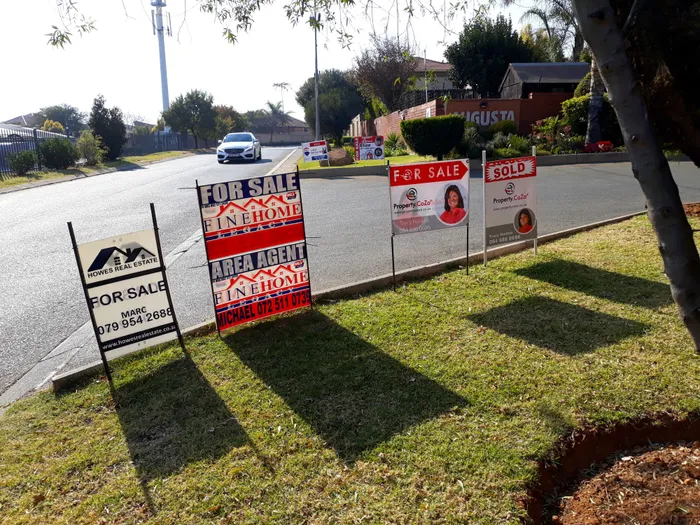Trustees face liability as mismanagement puts sectional title owners at risk

Trustees of sectional title schemes face personal liability for mismanagement, impacting property values and owners. Discover the rights of owners and the responsibilities of trustees in maintaining compliance and protecting their investments.
Image: Karen Sandison / Independent Newspapers
When trustees of sectional title schemes neglect their duties, mismanage funds, or fail to enforce rules, the consequences can be severe, not only for the trustees themselves but also for property values and owners left footing the bill.
Experts warn that trustees face personal liability if they don’t act in the best interests of a sectional title scheme, yet owners are not without legal recourse. They also note that managing agents are no substitute for responsible leadership and trustees cannot abdicate their responsibilities.
Wouter van den Heever, director at ASI Property, warns that “trustees may be held personally liable for losses suffered by the body corporate or owners where they have acted negligently, dishonestly, in breach of their fiduciary duties, or outside their powers”. He notes, however, that trustees are indemnified for good-faith decisions made within their authority.
Owners are not powerless, says Ron van der Bos, MD of Stonewood Property Management. They can call a special general meeting if owners holding 25% of common property are present, giving them the ability to remove trustees much as they would at an annual general meeting. This 25% is known as participation quota and relies on a calculation of the square meterage of their ownership based on several factors.
Trustees who fail in their duties can be removed through resignation, court order, or by the Community Schemes Ombud Service (CSOS), created under the Community Schemes Ombud Service Act, explains Van den Heever. Other reasons for trustees being removed from office include misconduct, failure to perform duties, or incapacity, he says.
People are barred from being trustees if they are declared of unsound mind, become insolvent, are convicted of theft, fraud, forgery, perjury, or other dishonesty offences, are sentenced to prison without the option of a fine, are removed from an office of trust for misconduct involving money, fail to pay amounts due after a court or CSOS order, or are disqualified as directors under the Companies Act, explains Van den Heever.
If issues persist, owners can lodge a dispute with CSOS. Van der Bos explains that CSOS can resolve disputes, issue orders, and appoint administrators if needed.
Going to court is also an option. Van der Bos says courts may appoint an independent administrator to take over management and finances where a scheme faces serious financial problems or mismanagement, with the goal of “restoring order and sustainability”.
Administrators report to the ombud every three months and take control of finances, levy collection, and repairs, experts note.
Van den Heever adds that administration may be necessary where trustees cannot agree on actions, resign in numbers, or are persistently absent, leaving no effective leadership. He lists gross negligence, financial mismanagement, failure to maintain common property, and non-compliance with laws as grounds.
Other reasons include not holding meetings, not keeping records, and governance collapsing to the point that property values or safety are at risk.
“Administration is usually a last resort, as it can be costly, but it protects the long-term value of the scheme and ensures compliance with the law,” says Van den Heever.
Trustees carry responsibilities under the Sectional Titles Schemes Management Act, promulgated in 2011.
Van der Bos explains that these include:
- Budgeting for future expenses
- Determining levies to cover the anticipated expenses
- Levy collection
- Arranging maintenance (both current and future anticipated maintenance)
- Insuring buildings and ensuring there is public liability cover
- Enforcing conduct rules against all owners and occupants, and
- Acting in the body corporate’s best interests.
Where trustees fall short, says Van der Bos, is often in mismanaging funds, neglecting maintenance, failing to enforce conduct rules, having poor communication, and ignoring procedures. Van den Heever adds other issues, such as trustees’ failure to maintain common property timeously, lack of regular maintenance plans, lack of transparency, missed meetings, and selective enforcement of rules.
When owners are unhappy with how these duties are carried out, they have the right to access documents such as financial statements, rules, minutes, and trustee resolutions, which must be provided within 14 days of a written request.
“Trustees must make records available on written request. Failure to do so is grounds for a CSOS dispute application,” says Van den Heever.
However, it’s not easy to persuade people to act as trustees, says Andrew Schaefer, MD of property management company Trafalgar. Acting as a trustee, which is a voluntary, after-hours, and unpaid position, has become an increasingly complicated, time-consuming, and often thankless job. As a result, an increasing number of schemes are struggling to find enough people willing to take it on, he says.
Having a managing agent does not absolve trustees of responsibility. “Trustees remain ultimately responsible for the scheme’s management,” says Van der Bos. One solution Schaefer suggests is appointing what is known as an executive managing agent, a company that fulfils the role of a board of trustees and provides regular reports to owners.
Schaefer says managing agents must be registered with the Property Practitioners Regulatory Authority and hold a valid Fidelity Fund Certificate. Without this, owners face considerable financial risk.
“Managing agents without proper registration and the correct certificate are operating illegally and cannot legally claim commission or payment for their services,” Schaefer says.
Schaefer adds that an unregistered managing agent without adequate knowledge could result in “all sorts of problems, such as levy defaults not being addressed and maintenance or repair projects not being properly supervised. These can quickly lead to the scheme becoming run-down and to a deterioration in home values.”
PERSONAL FINANCE